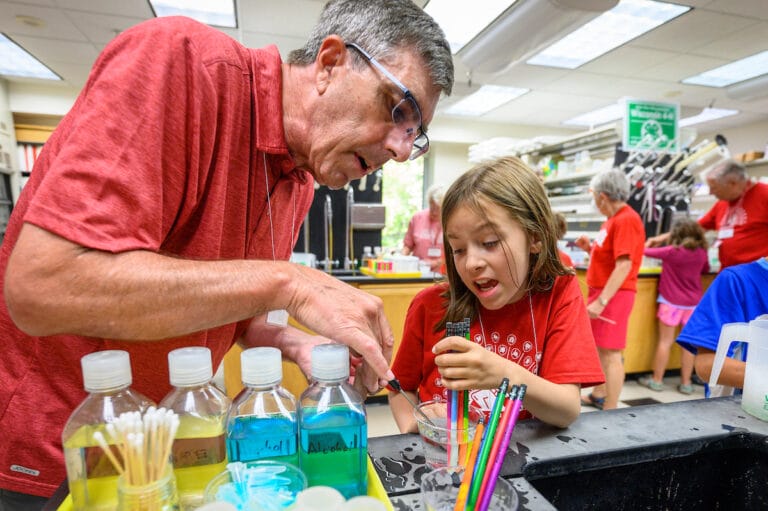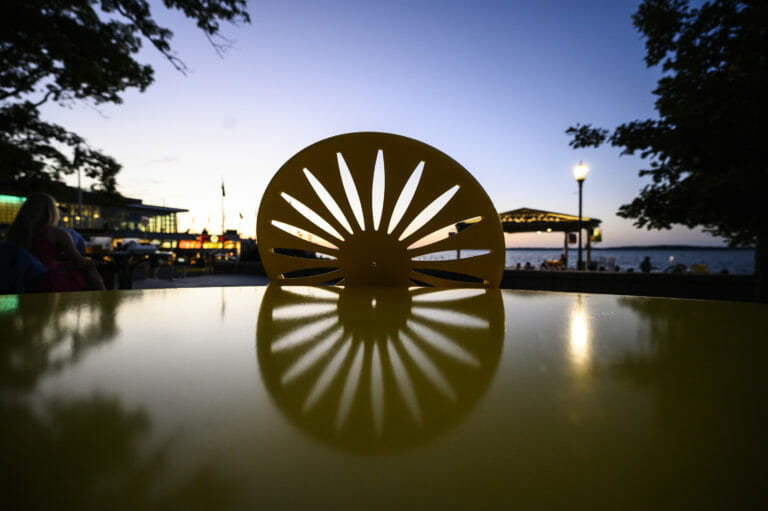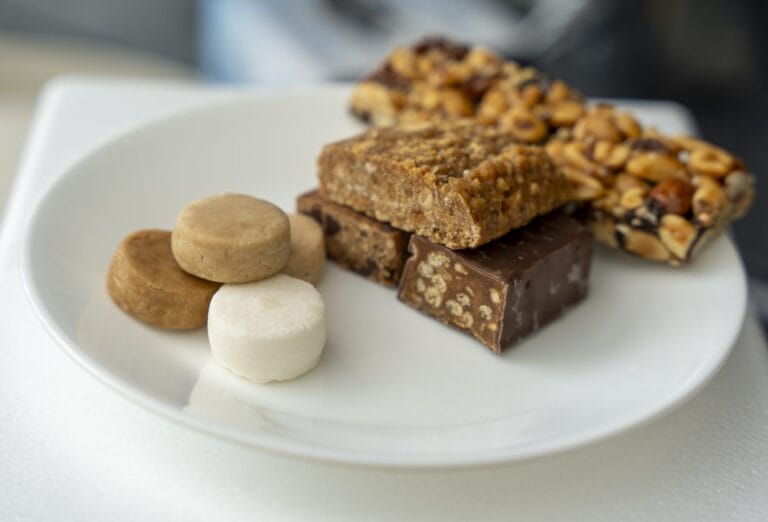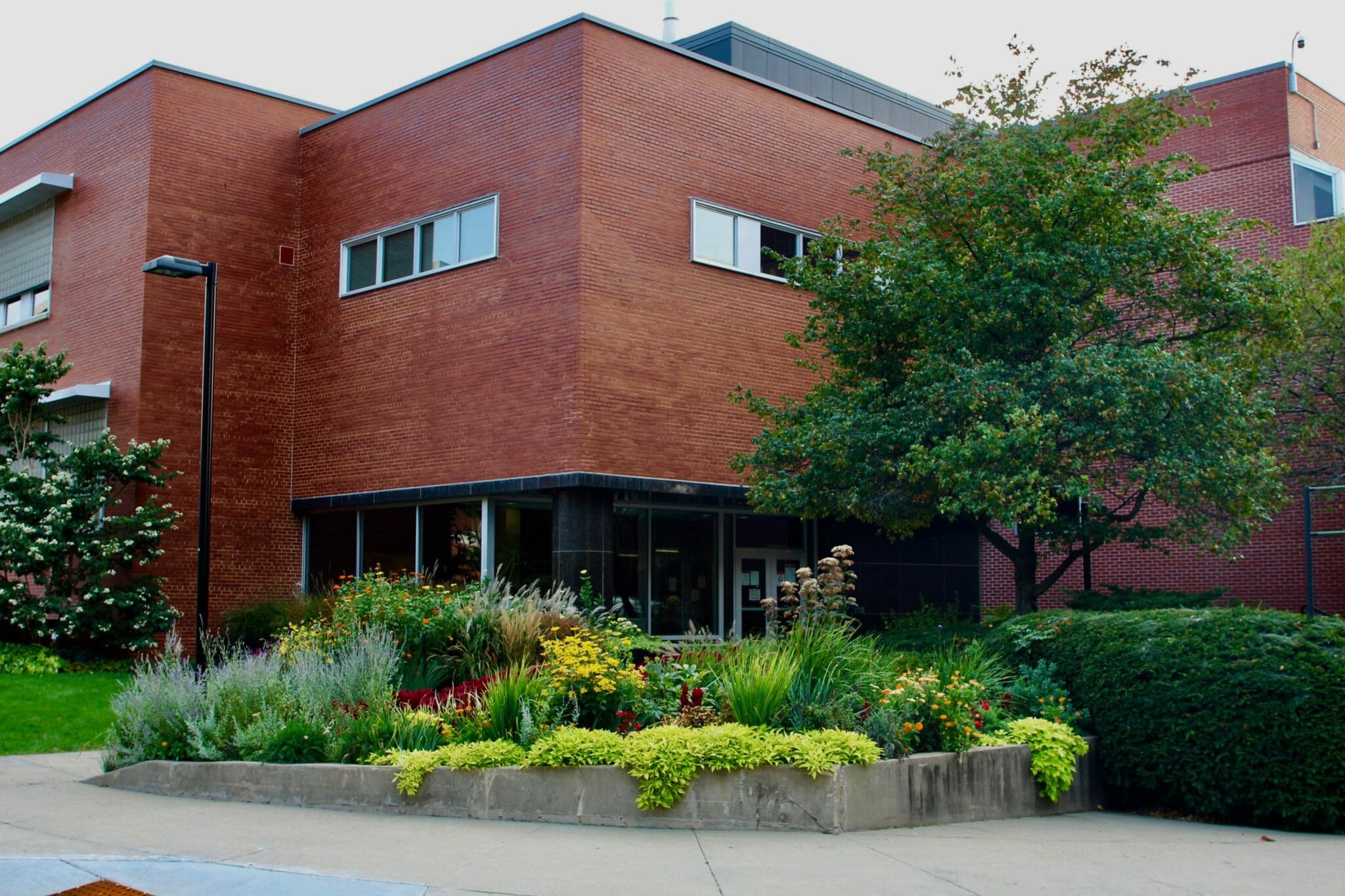

About Us
Food impacts everyone every day, but have you ever wondered what impacts food? Of course, many key influences and voices affect the food we eat. Our belief and passion is that science must continue to resonate and shape the world of food – a voice that originates from Food Science. We invite you to join us and embark on a path to learn fundamental chemistry, biology, and physics disciplines and add your voice to our mission to make food safe, sustainable, and available for everyone.
Mission & Vision
Our Food Science mission is empowered by science, driven by health, we make the future of food sustainable, inclusive and fun!
The vision of the Food Science Department is globally impactful, sustainable food production systems through a supportive and innovative community.
Our History
The University of Wisconsin is one of the first land-grant universities in the United States, which provided the opportunity to expand the school’s agricultural studies. The Department of Food Science (initially called Dairy Husbandry) started in 1890 in a small frame building for farmers trained in butter and cheese-making operations. The Department of Dairy Husbandry was the first dairy school established, which developed the first short courses in the United States in 1930. Short courses are specific classes that strive to teach someone a particular topic in a short amount of time.
Stephen Moulton Babcock, the creator of the butterfat tests, was an Agricultural Chemist for the University of Wisconsin-Madison. After the success of his butterfat tests in 1890, course enrollment exploded from two to seventy-two and the butterfat tests became the standard for testing the quality of milk and the basis of milk pricing. Hiram Smith Hall was constructed in 1892 to hold all the new equipment and students. From then on, the Department of Food Science kept growing. Babcock Hall, located at 1605 Linden Drive, was constructed in 1952. The construction demolished the initial small frame building to make room for this new modern building which is still used today. Babcock also assisted UW Bacteriologist Harry Russell in developing the cold-curdling process of ripening cheese in 1897.
Stained Glass Creation
Owen Fennema had many accomplishments as a food scientists, as a professor, an editor and an author. He completed his formal education with a PhD from the University of Wisconsin-Madison in 1960 and quickly rose through the ranks until his retirement in 1996.
Fennema no only left an indelible mark on the field of food science but also showcased his artistic talents beyond academia. His passion extended to woodworking, carpentry, and the intricate art of leaded glass design and construction. Owen’s avocation in woodworking and carpentry allowed him to create functional and beautiful pieces; however, it was in the realm of leaded glass that he truly excelled. This art form requires precision, creativity, and an understanding of light and color. Owen’s stained glass works adorned various spaces, casting vibrant hues and intricate patterns. His pieces became part of the fabric of UW-Madison, hanging in buildings where they added both aesthetic beauty and a touch of his soulful creativity.
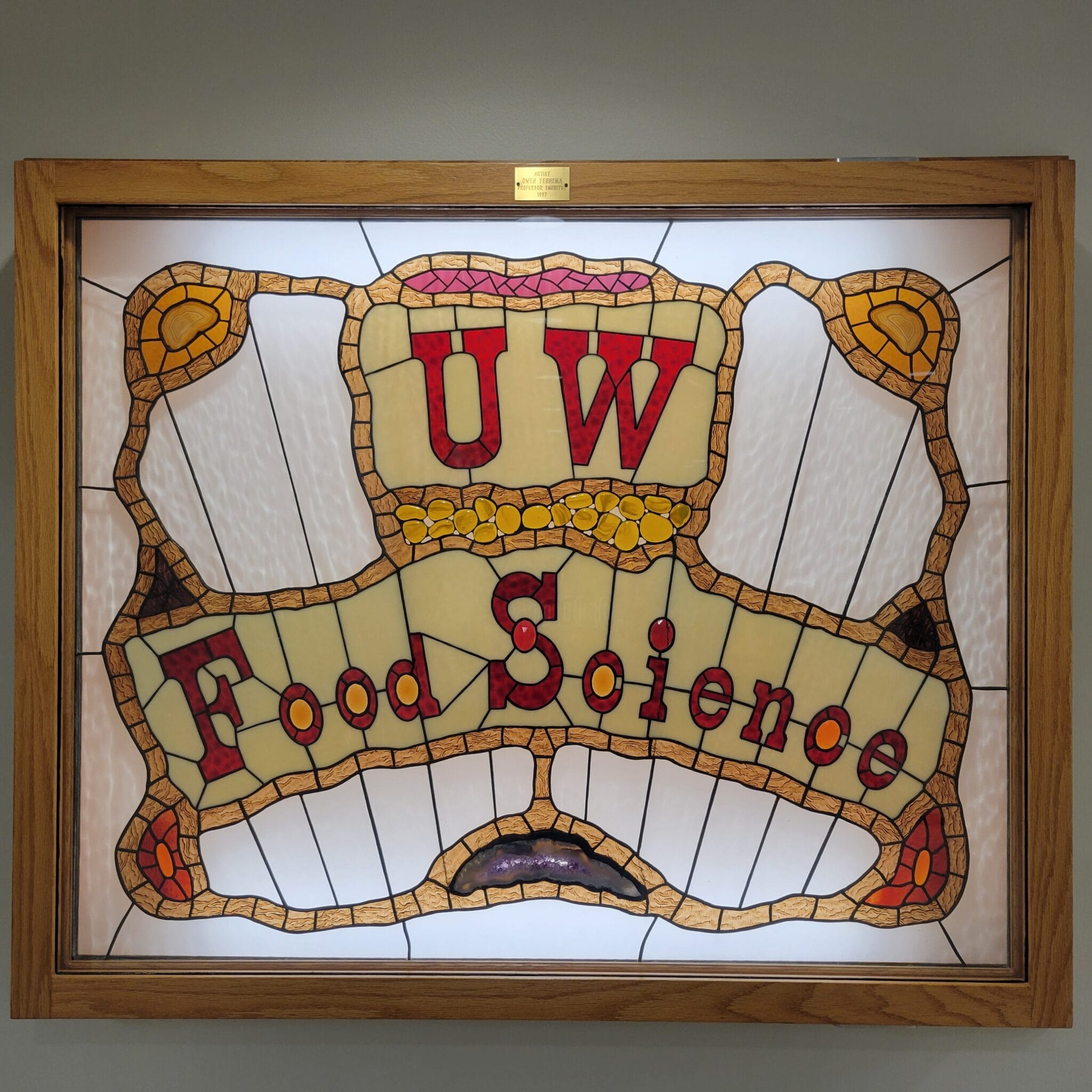

Our Staff
Our biggest asset is the collection of leading faculty and experienced staff dedicated to helping you meet your educational and career goals. Every door is open, and every conversation is welcome as you navigate each academic year.
Our Students
With various background and interests, Food Science students work closely together to support and guide each other through the standard curriculum and a host of extracurricular activities. We welcome you to engage with them and bring your own experiences and insights to this community.
Recent News
Students leave UW’s Grandparents University with a “credential,” some new knowledge and enthusiasm, and the enduring gift of quality time spent with loved ones. Courses…
The College of Agricultural and Life Sciences honors faculty members who have earned named professorships for their research and scholarly accomplishments. These prestigious awards are…
Written by Renata Solan. From athletes in training to busy people in need of a snack, consumer demand is high for protein-rich, shelf-stable snacks such…


